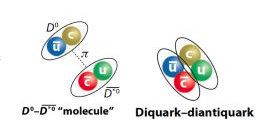Since you asked this question there have been a couple of confirmation of exotic particles which consist of four or more quarks. For example, Z(4430) recently observed in LHCb, was already discovered by Belle long time ago. This exotic particle has a $c\bar{c}d\bar{u}$ quark structure. This would lead us to think how color confinement would be satisfied? As you know baryons made of $qqq$ and mesons $q\bar{q}$ states which make them color-neutral. But the think is quarks are color charged particles and they need to make such a structure that would balance color to reach neutral state.
In QCD, a quark's color can take one of three values or charges, red, green, and blue. An antiquark can take one of three anticolors, called anti-red, anti-green, and anti-blue (represented as cyan, magenta and yellow, respectively). Quark-gluon fields and color charges are well understood for quark model so far. Baryons and mesons feigned such a simplicity until multi-quark states have found. Now, rather than leave aside the quark-model, physicist try to expand the theory for multi-quark particles.
Tetraquarks are composed of two primary color quarks and two antiquarks. Now the debate is, how do they combined into a neutral-state. There are some contradictions on this part. There are 2 predictions for multi-quark states:
Molecular state model : $q\bar{q}$-$q\bar{q}$ form such two neutral mesons to become neutral.
Di quark-di antiquark model : $qq$-$\bar{q}\bar{q}$ form neutral particles.

Both models have their own conflicts. Too figure out the inner structure of such exotic particles QCD would be the strongest theory. Researchers have failed to build abridgments of QCD that fit the data much better than the naive quark model. But these particles obviously do not fit in standard quark model so far.
See also the link for a further reading and information.

